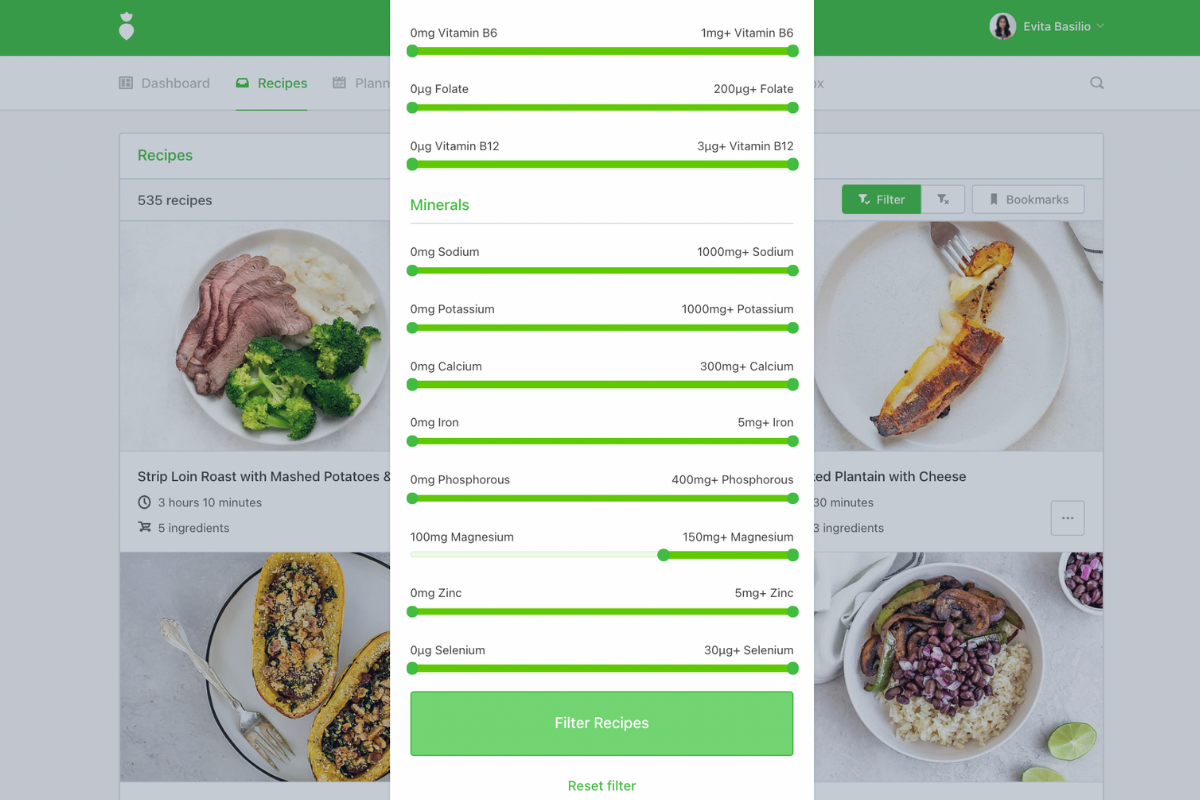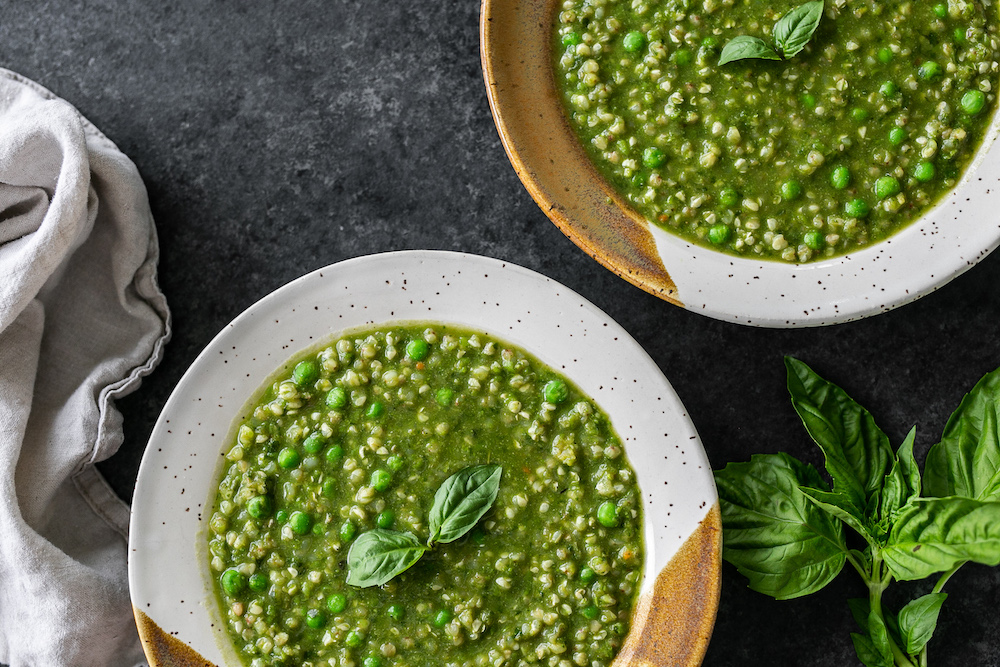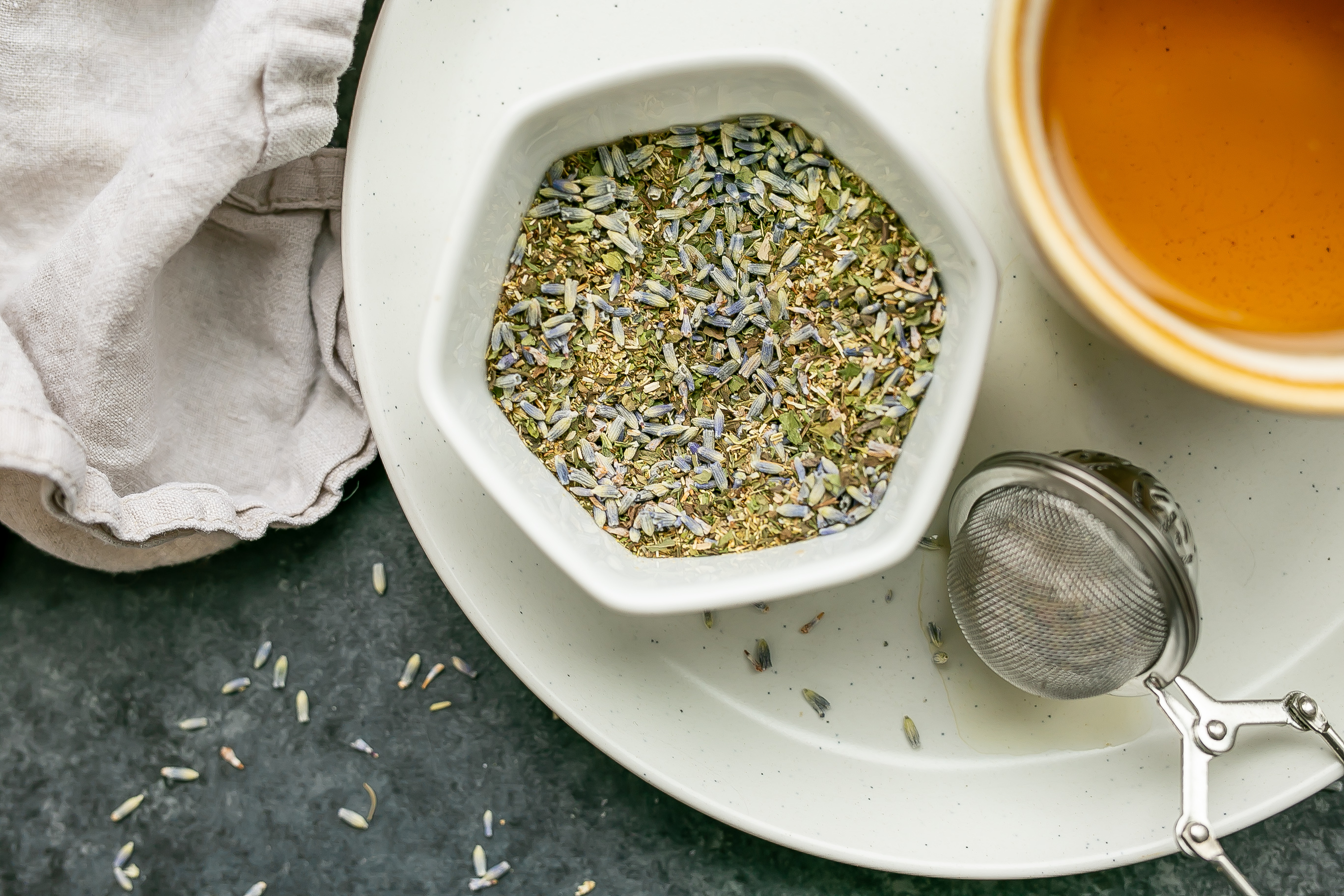Anxiety is one of the most prevalent mental health conditions. Symptoms can vary depending on the type of anxiety disorder. Stress and anxiety often occur together and when left untreated, chronic stress can increase your client’s risk for conditions such as obesity, type 2 diabetes, heart disease, depression, and Alzheimer’s disease.
If your client struggles with stress and anxiety, you can help them make dietary changes to improve their mental health. Stress and anxiety treatment can involve therapy, medications, and lifestyle changes with nutrition playing an important role in managing the condition by regulating neurotransmitters and blood sugar levels.
In this article we will cover:
- Key nutrients to include in your client's meal plan.
- Meal ideas to manage stress and anxiety.
- Lifestyle interventions to provide symptom relief.
Key Nutrients in Meal Planning for Stress & Anxiety
Magnesium
Research shows that magnesium plays a role in migraines and depression. It can help with chronic pain and anxiety. Many people do not reach their daily recommended intake of magnesium through diet, which contributes to hypomagnesemia and increases anxiety-related behaviors.
Foods naturally rich in magnesium may help a person to feel calmer such as spinach, pumpkin seeds, legumes, bananas, and oats. These foods are also good sources of the amino acid tryptophan, which is converted to serotonin in the body and may promote relaxation and anxiety relief.
Tip: Use That Clean Life's nutrition filters to easily find recipes high in magnesium like this Coconut Hemp Seed Breakfast Pudding.

Vitamin B6
Getting enough vitamin B6 through diet is an important way to support the body during stress and reduce anxiety. Women who consume more vitamin B6 are less likely to experience anxiety, depression, and panic attacks. Vitamin B6 is also more effective when combined with magnesium in adults with severe stress.
Tip: Log into That Clean Life and add this Pea & Basil Buckwheat Risotto to your client’s meal plan. This dish is high in vitamin B6, magnesium, and iron.

Iron & Vitamin C
Low iron is a known contributor to anxiety and depression. Women who are more likely to experience anxiety are also more likely to have low iron status.
There are two types of iron found in foods: heme iron (from red meat and other animal products) and non-heme iron (from spinach, legumes, and dried fruit). High-quality protein sources typically contain more iron and produce the neurotransmitters dopamine and serotonin, which have the potential to improve mental health.
For better absorption of non-heme iron, encourage clients to pair it with vitamin C-rich foods like citrus, tomatoes, or peppers at mealtime. These foods also have antioxidant properties that may help reduce inflammation and prevent damage to cells.
Tip: Click here for more meal ideas with these key nutrients to help reduce stress and anxiety.

Fiber
Fiber is an important nutrient to reduce anxiety. It helps to balance blood sugars and feeds gut bacteria to produce short-chain fatty acids, which can decrease anxiety. Help your clients increase their fiber intake by including whole grains, legumes, seeds, and cruciferous vegetables on their meal plan.
Check out our ready-to-use Stress & Anxiety Support Program and Plant-Based Stress & Anxiety Support Program. These programs have been carefully designed to include key nutrients to help support clients with stress and anxiety including magnesium, vitamin B6, iron, vitamin C, and fiber. Both programs include a 7-day meal plan, itemized grocery list, recipes, a prep guide, and supporting evidence. The programs are fully customizable based on your client’s energy needs and preferences.
Key Lifestyle Considerations for Stress & Anxiety
Exercise
Physical activity lowers the stress hormone cortisol and increases endorphins which improve mood. It activates parts of the brain which control our stress response and increases the availability of important anti-anxiety neurochemicals.
Exercise has also been shown to reduce inflammation and improve sleep quality which can improve physical and mental stress. Encourage your clients to participate in joyful movement to decrease muscle tension, lowering the body’s contribution to feeling anxious.
Hydration
Even mild dehydration can affect your client's mood. However, helping them find the right types of fluid is important. Consuming large amounts of caffeine, either from coffee, caffeinated tea, or energy drinks can increase levels of anxiety and symptoms such as heart palpitations and jitteriness.
Beverage options that include chamomile and turmeric may help reduce anxiety. Chamomile and curcumin in turmeric, both contain antioxidant and anti-inflammatory properties, which may help lower inflammation associated with anxiety.
Tip: Include this Calming Chamomile Lavender Mint Tea and Golden Turmeric Latte on your client's meal plans.

Therapy
Stress and anxiety may require a multitude of approaches to be managed effectively. Along with a balanced diet, exercise, and adequate sleep, your client will benefit from seeing a doctor or psychologist for talk therapy or cognitive behavioral therapy. They may also be prescribed medications in some cases.

